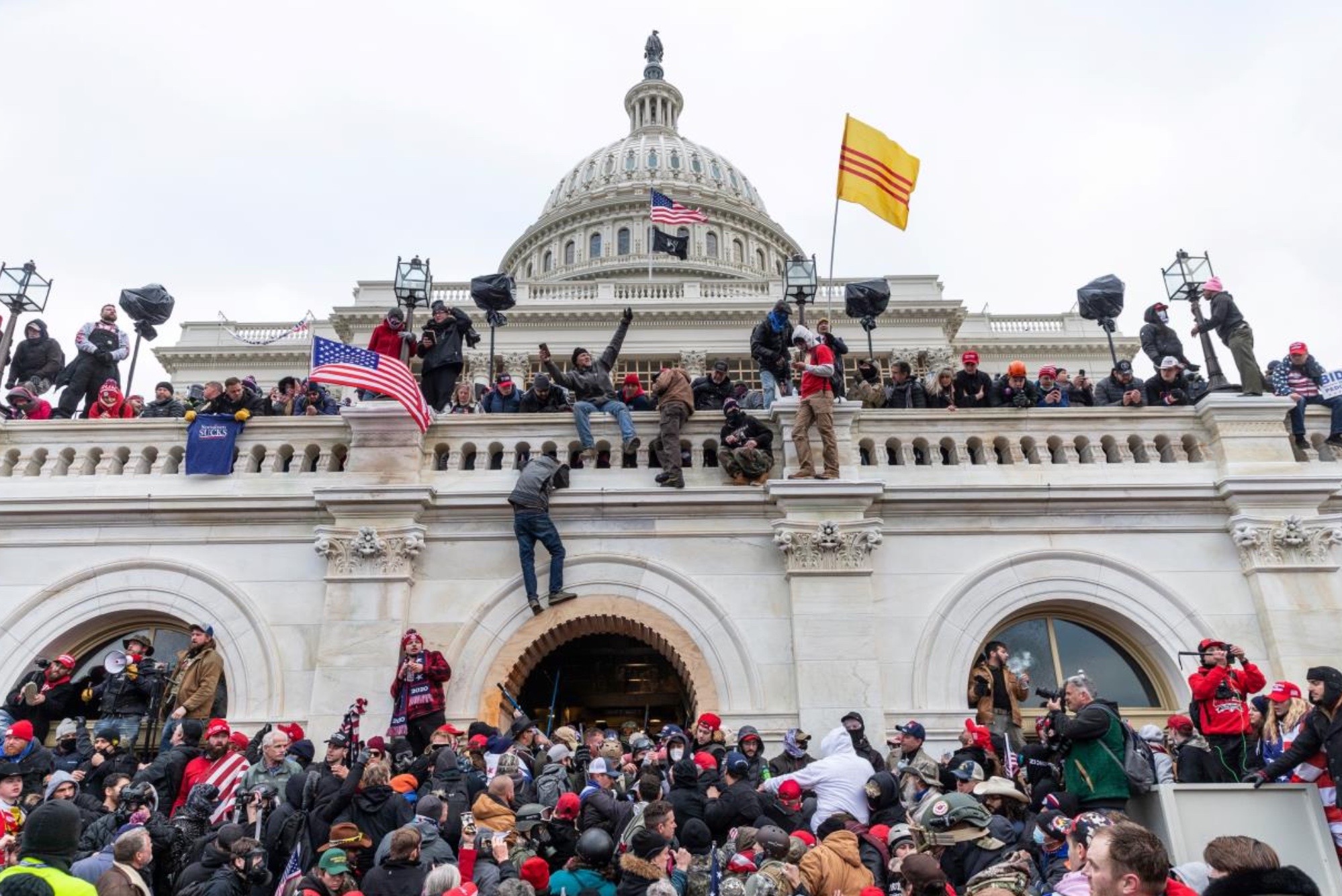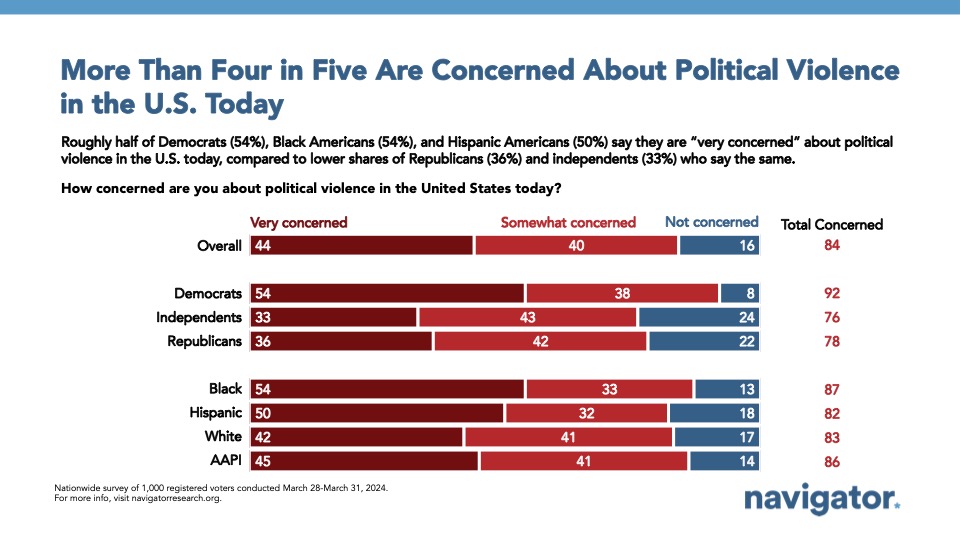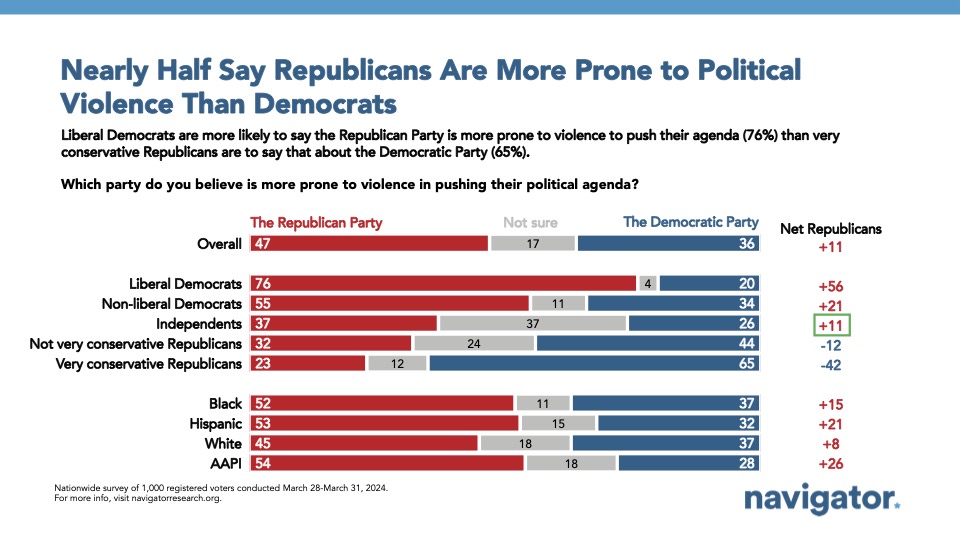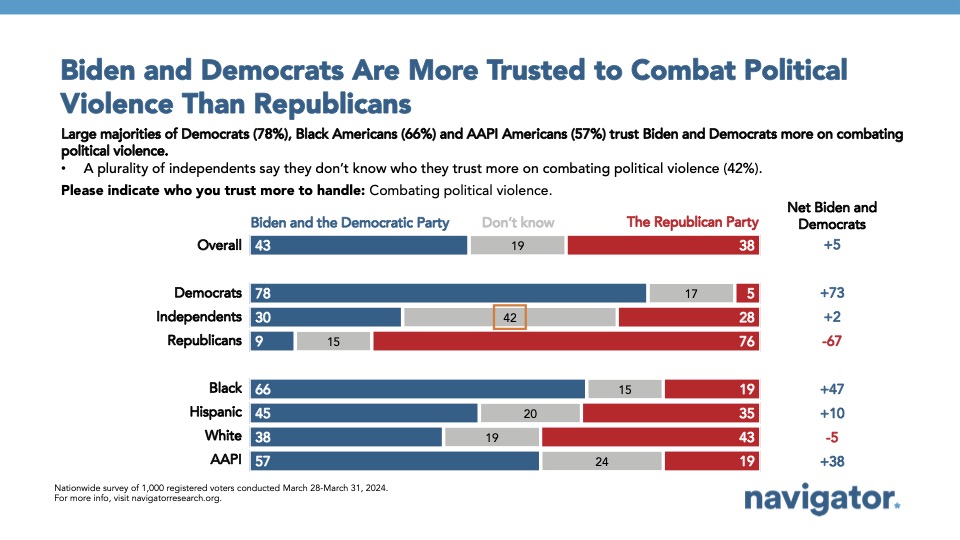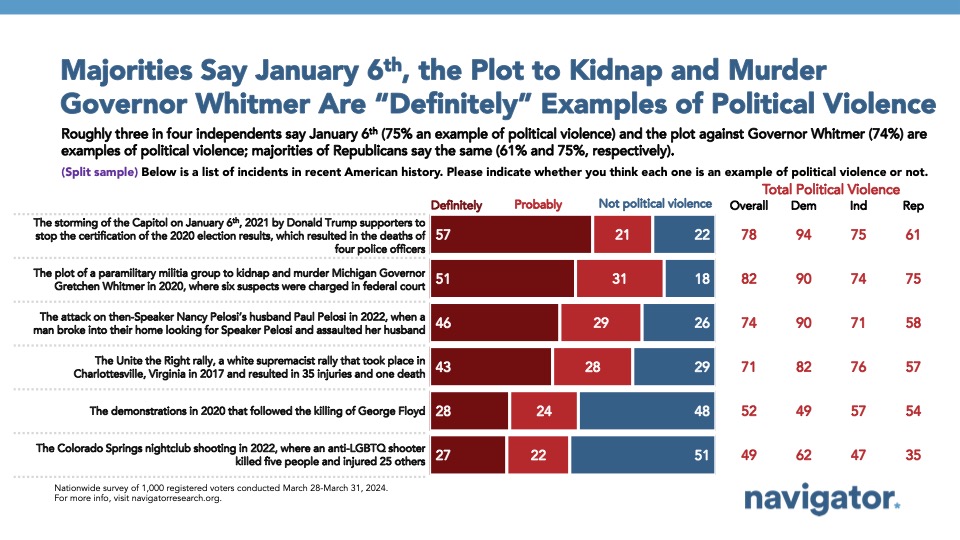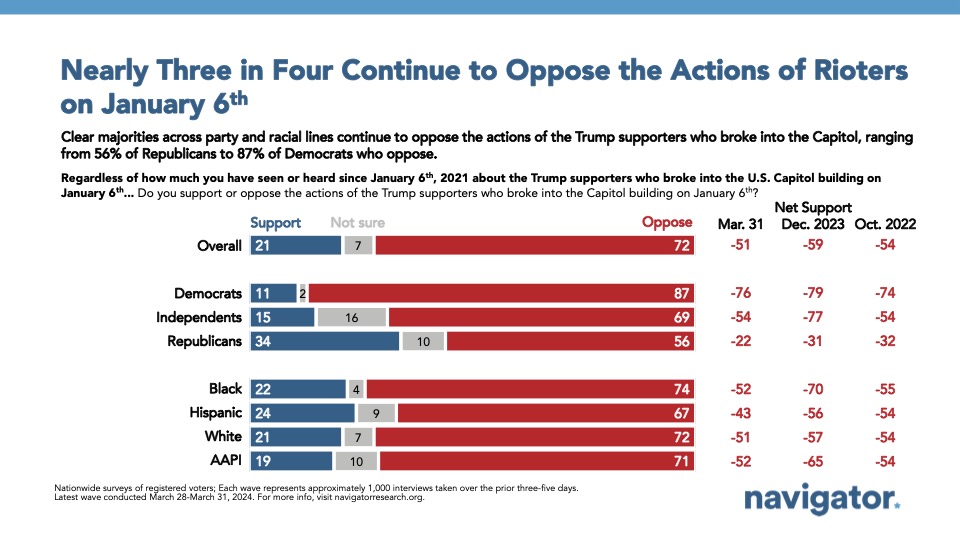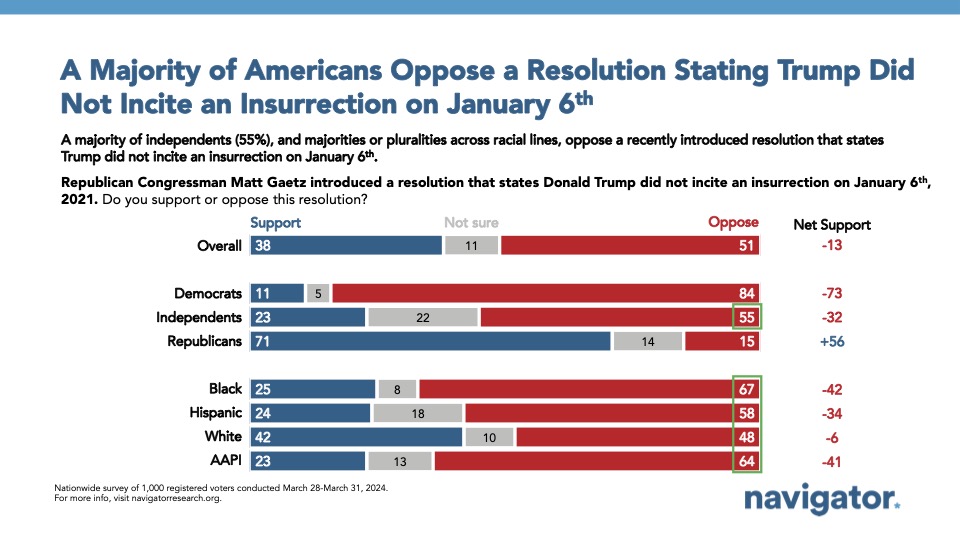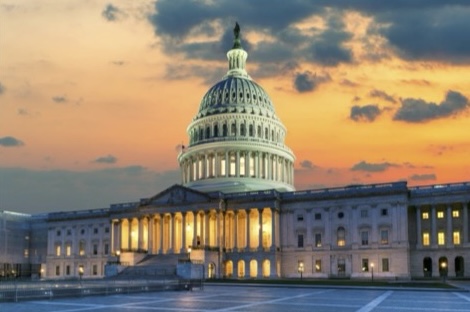Poll: Political Violence in the U.S.
This Navigator Research report contains polling data on perceptions of the threat of political violence, which party Americans trust to handle the issue of combating political violence and democracy, and which recent incidents Americans believe to be examples of political violence.
Four in five Americans are concerned about political violence, including more than three in four across partisanship.
More than four in five Americans are concerned about political violence (84 percent), with nearly half describing themselves as “very” concerned about political violence (44 percent). Concern is high across partisanship, including more than nine in ten Democrats (92 percent), nearly four in five Republicans (78 percent), and three in four independents (76 percent). The share who are “very” concerned is highest among Democrats (54 percent), compared to 36 percent of Republicans and one in three independents (33 percent). College educated women (93 percent), liberal Democrats (92 percent), and those over the age of 65 (90 percent) are among the groups most concerned about political violence.
- By an 11-point margin, a plurality say Republicans are more likely to resort to violence when pushing their political agenda (36 percent Biden/Democrats – 47 percent Republicans), including a plurality of independents (net -11; 26 percent Biden/Democrats – 37 percent Republicans).
- Biden and the Democratic Party hold a trust advantage on handling democracy (net +8; 48 percent Biden/Democrats – 40 percent Republicans), including among Black Americans (net +57), Asian Americans and Pacific Islanders (net +40), and Hispanic Americans (net +23). Biden and Democrats also hold a 5-point trust advantage on combating political violence (43 percent Biden/Democrats – 38 percent Republicans).
Majorities say January 6th, the plot to kidnap and murder Governor Whitmer are “definitely” examples of political violence.
Right-wing inspired violence like the plot to kidnap Governor Gretchen Whitmer, the storming of the Capitol on January 6th, and the attack on then-Speaker Nancy Pelosi’s husband are seen as the most prominent examples of recent political violence. 82 percent of Americans believe that “the plot of a paramilitary militia group to kidnap and murder Michigan Governor Gretchen Whitmer in 2020, where six suspects were charged in federal court” is an example of political violence, including nine in ten Democrats (90 percent) and three in four Republicans (75 percent) and independents (74 percent). Other widely agreed upon examples of political violence include:
- The storming of the Capitol on January 6th, 2021 by Donald Trump supporters to stop the certification of the 2020 election results, which resulted in the deaths of four police offices (78 percent see this as an example of political violence, including 75 percent of independents and 61 percent of Republicans);
- The attack on then-Speaker Nancy Pelosi’s husband Paul Pelolsi in 2022, when a man broke into their home looking for Speaker Pelosi and assaulted her husband (74 percent see this as an example of political violence, including 71 percent of independents and 58 percent of Republicans); and,
- The Unite the Right rally, a white supremacist rally that took place in Charlottesville, Virginia in 2017 and resulted in 35 injuries and one death (71 percent see this as an example of political violence, including 76 percent of independents and 56 percent of Republicans).
Majorities of Americans continue to oppose the actions of rioters on January 6th.
Nearly three in four Americans continue to oppose the actions of the rioters who broke into the U.S. Capitol on January 6th, and a majority oppose Representative Gaetz’s House resolution that states Trump did not incite an insurrection. 72 percent of Americans oppose the actions of Trump supporters who stormed the Capitol building on January 6th, including nearly nine in ten Democrats (87 percent), seven in ten independents (69 percent), and more than half of Republicans (56 percent). Seven in ten Republicans who do not identify as part of the MAGA movement oppose the actions of the rioters on January 6th (net -49; 21 percent support – 70 percent oppose), while a plurality of MAGA Republicans support the actions of the rioters (net +6; 47 percent support – 41 percent oppose).
- A majority of Americans are opposed to a resolution introduced by Representative Matt Gaetz that states Donald Trump did not incite an insurrection on January 6th (net -13; 38 percent support – 51 percent oppose), with opposition being driven primarily by Democrats (84 percent) and a majority of independents (55 percent); fewer than one in five Republicans are opposed to it (15 percent).
About The Study
Global Strategy Group conducted public opinion surveys among a sample of 1,000 registered voters from March 28-March 31, 2024. 100 additional interviews were conducted among Hispanic voters. 75 additional interviews were conducted among Asian American and Pacific Islander voters. 100 additional interviews were conducted among African American voters. 100 additional interviews were conducted among independent voters. The survey was conducted online, recruiting respondents from an opt-in online panel vendor. Respondents were verified against a voter file and special care was taken to ensure the demographic composition of our sample matched that of the national registered voter population across a variety of demographic variables.
